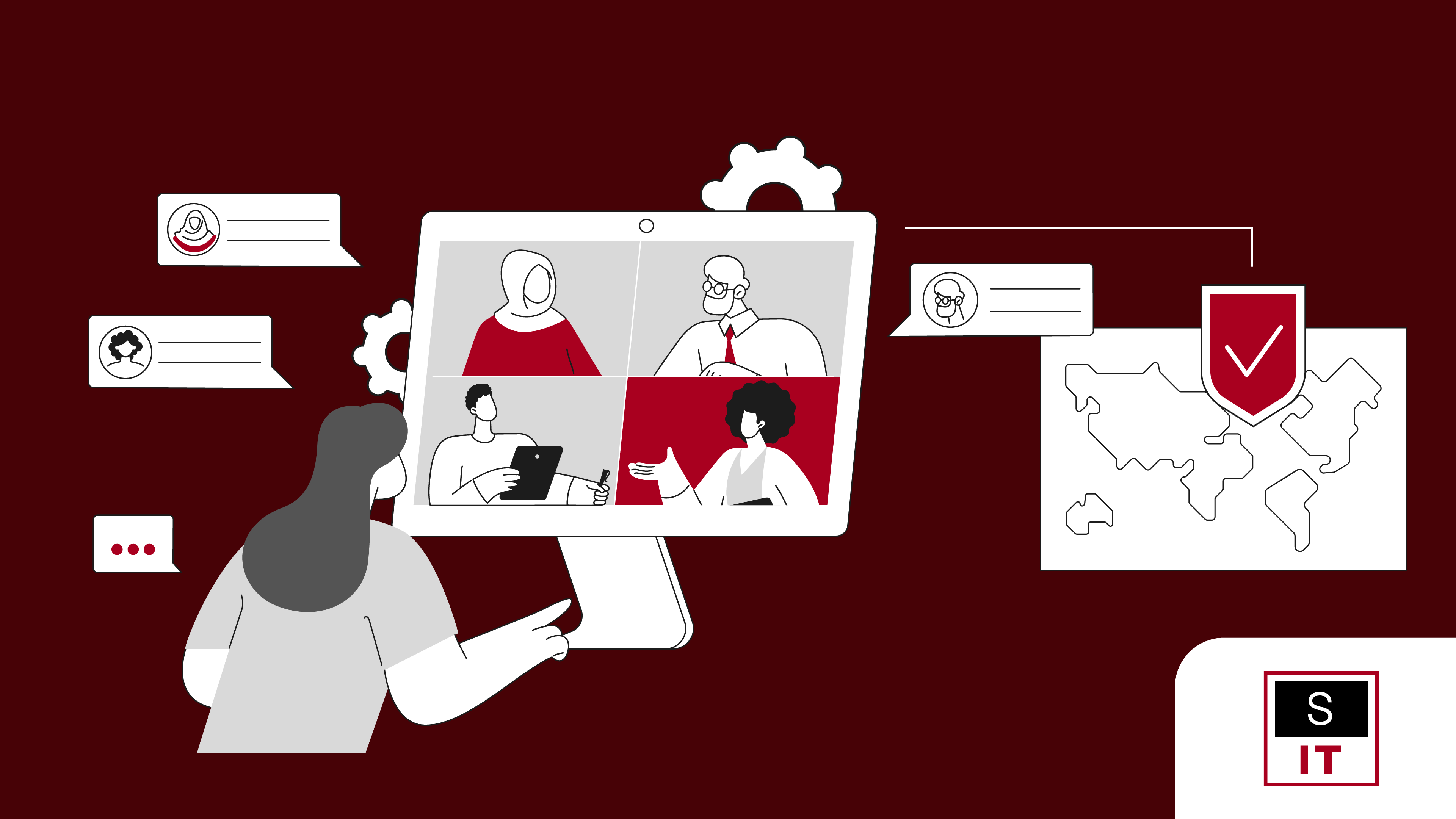
September 3, 2025
Cybersecurity for Remote and Hybrid Teams: Challenges and Best Practices
1. Logging in from Multiple Devices
2. Sharing and Editing Files Across Locations
3. Changing Roles or Off-boarding Staff
4. Connecting Over Public or Home Wi-Fi
Hybrid work is no longer a short-term fix. It has become a cornerstone of modern work culture. As of early 2025, around 83 percent of employees worldwide prefer hybrid setups that blend in-office and remote days.
This flexibility brings clear benefits for productivity, recruitment, and retention — but it also expands the range of devices, networks, and locations from which staff access your systems. That broader “attack surface” means businesses must be deliberate about securing remote access without slowing down day-to-day work.
For IT leaders and business owners, the question is simple: How do you give people the freedom to work anywhere while keeping business data safe?
With the right setup, Microsoft 365 can deliver exactly that. Its integrated tools — including Microsoft Entra ID, Conditional Access, Intune, and Defender for Office 365 — allow you to manage logins, protect files, and monitor for suspicious activity, all from a single platform.
Here are four common remote and hybrid work scenarios, the risks they pose, and the practical measures that can keep your business secure.
Modern work often spans across laptops, phones, and home desktops, but each additional device brings new security risks. Unmanaged or outdated devices may lack essential updates, encryption, or security software, making them vulnerable to malware or unauthorised access. Microsoft Entra ID Conditional Access helps reduce this risk by allowing sign-ins only from devices that meet your organisation’s security standards.
With Microsoft Intune, compliance checks are automated to confirm operating systems are current, devices are encrypted, and the right security tools are in place. For personal or unmanaged devices, you can restrict access to web-only versions of applications or block high-risk data altogether.
Collaboration across different cities or time zones is now standard, but when files are emailed, uploaded, and shared in multiple ways, it becomes easy to lose track of versions or expose sensitive data. By using SharePoint and OneDrive, teams can securely collaborate in real time with version history built in.
Sensitivity labels add another layer of control, automatically encrypting files or limiting access to specific audiences. Combined with carefully reviewed external sharing rules, these measures prevent documents from being forwarded beyond their intended recipients and help maintain full oversight of business information.
When employees change roles or leave the business, it’s critical to ensure their access to files, mailboxes, and applications changes with them. Retained access, whether intentional or not, can expose sensitive information and create compliance risks.
Microsoft 365 Admin Centre makes this process straightforward, allowing administrators to revoke active sessions, remove licences, and transfer file ownership within minutes. Regular Access Reviews ensure permissions remain up to date, while Microsoft Purview audit logs provide visibility into any unusual activity during transitions or offboarding.
Remote work often means connecting from home, co-working spaces, or even airport lounges, where unsecured networks are a common threat. Attackers can exploit these environments to intercept logins or sensitive communications.
The best defence is to require all staff to connect through a company-approved VPN and enforce Multi-Factor Authentication (MFA) on every login. Pairing these protections with staff training on phishing awareness, safe Wi-Fi use, and secure connections ensures that remote work remains both productive and secure.
Strong security is more than just turning on the right features — it’s about integrating them into everyday workflows. DefenderSuite Plans help businesses configure Microsoft 365 so that access controls, collaboration safeguards, and monitoring tools work seamlessly for remote and hybrid teams.
Whether your staff are in the office, at home, or on the move, we ensure your security policies match your business’s needs while keeping productivity high.
Superior IT works with Australian businesses to configure Conditional Access, Token Protection, and other Microsoft 365 safeguards to best-practice standards. We manage deployment, user onboarding, and integration so your team stays secure without unnecessary complexity.
Call us: 1300 93 77 49
Email: info@superiorit.com.au
Website: www.superiorit.com.au
Reinventing Microsoft’s Employee Experience for a Hybrid World. Microsoft Inside Track.
Set up your infrastructure for hybrid work with Microsoft 365. Microsoft Learn.
If you're looking for more info or assistance, we're a call, email or message away.
App Development, Business & Tax, and Digital Marketing. Super Charge Your Growth.
Existing Customer Support Portal, speak to one of our experts in no time.